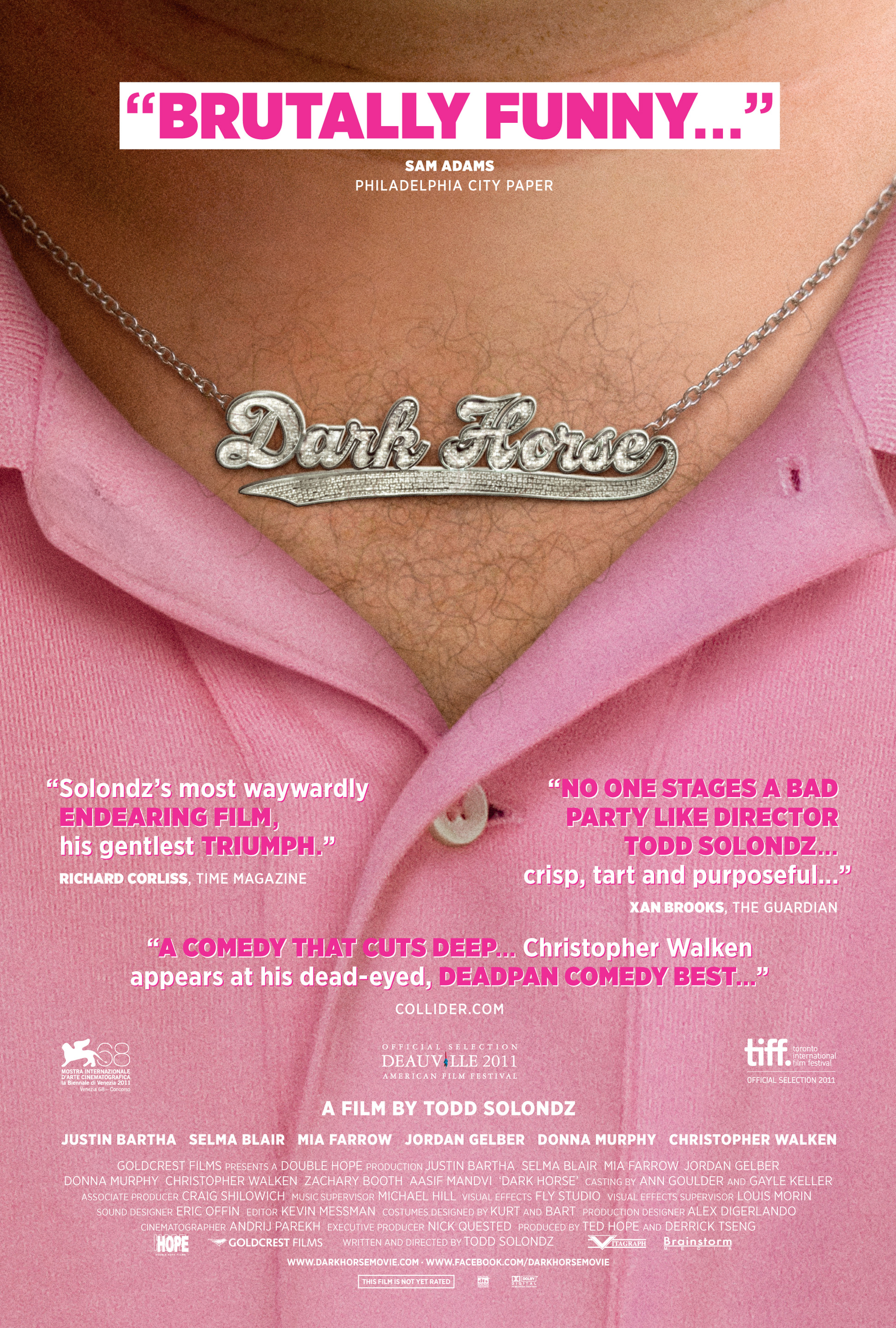Anyone looking for an easy, quirky, indie dramedy should stay away from “Dark Horse” and go re-watch “(500) Days of Summer.” When it comes to pathos, director Todd Solondz paints with a heavy brush, and the lines ““ of character, plot and tone ““ often become an infuriating tangle of general unpleasantness, but not without a greater purpose.
Abe (Jordan Gelber) is a 30-something man-child who, over the years, has atrophied into a grossly unlikable tantrum-throwing freeloader who still lives in his childhood home with his fawning, tawny-haired mother (Mia Farrow) and his bleary-eyed, but tolerant father (Christopher Walken).
Yes, he even has an extensive toy collection and works for his father’s real estate company, which he ironically defends as “not nepotism” (it is). Abe trundles from work to Toys “R” Us to home in a canary yellow Hummer that is as big, sputtering and inefficient as its owner, always ready to petulantly practice reverse psychology (the kind fifth-graders feel smart using) on anyone who questions his lifestyle.
Abe lives a kind of banal fantasy where everyone either fits into a pre-scripted and comfortable role in his life or else is maliciously betraying him. The phrase “dark horse” alternately functions as a euphemism for “failure” and as an optimistic finger in the door between the bland here-and-now and the potentially glorious there-and-then. But Abe is lazy, and any attempt to change his life amounts to nothing more than reshuffling the cards in his deck.
Abe meets a lovely, yet vaguely unhinged and heavily medicated young woman named Miranda (Selma Blair), with whom he forms an odd, yet seemingly sincere bond. Failed literary aspirations and self-destructive tendencies have forced her to also move in with her parents. Miranda and Abe navigate precariously and sometimes hilariously around the hypocrisies, expectations and formalities of adult life. They never quite “succeed,” though the film never defines success unironically. But irony is also tossed aside like one of Abe’s many action figures ““ irony can be boring and impotent when there’s too much of it.
Normality doesn’t seem to be a reference point for anything that happens in this film or any character in it. Everything lies on a continuum of imperfection, and everyone is messed up to varying degrees. “Dark Horse” shows how building a little cellar of fictions in one’s mind (or sometimes living in it) may not be the refuge of only the delusional or hopeless.
Though the pacing and structure of the film are unconventional and may be difficult for the casual viewer looking for an immediate entertainment payoff, “Dark Horse” may reward the patient and open-minded.
Be warned: an apparently linear narrative will abruptly give way to the fantastic and absurd, and at some point it will be difficult to tease out the “real” narratives from the “imaginary” ones. For example, various characters may or may not have irreparable jaw damage, be pregnant, have Hepatitis B or be dead.
Sometimes it feels like the characters (not the actors) don’t really know how to “be people,” as if they were all aliens in the process of reading a million-page-long manual about how to act like a human and struggling to follow all the instructions correctly. The jolting nature of the transitions and blatant lack of likable characters make “Dark Horse” feel longer than its one-hour-and-20-minute length.
“Dark Horse” is not a single-planned comedy or drama, nor is it just a satire. The film starts out as a caricature of a developmentally arrested schmuck, but after several strange and often disturbing turns, it seems that the point of “Dark Horse” is not to condemn the “loser,” but perhaps, more broadly, to plumb the murkiness of humanity.
““ Lenika Cruz
Email Cruz at lcruz@media.ucla.edu.
